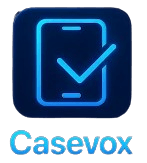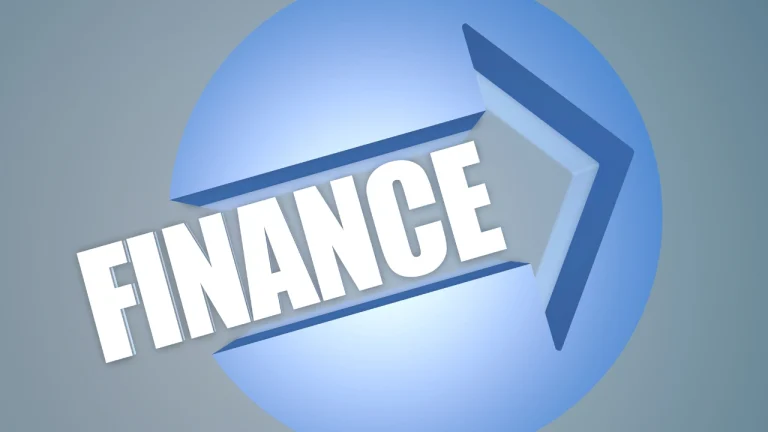Global Recovery Solutions LLC Debt Collection Harassment?
Global Recovery Solutions, LLC Debt Collection Harassment? Debt collection harassment under the Fair Debt Collection Practices Act (FDCPA) refers to any abusive, deceptive, or unfair practices used by debt collectors to pressure consumers into paying a debt. The FDCPA, a federal law enacted in 1977, was designed to protect consumers from such practices by establishing clear guidelines on how debt collectors can and cannot behave.
Many consumer complaints about debt collection harassment have played a significant role in the establishment and enforcement of the FDCPA.
Who are Global Recovery Solutions LLC?
Global Recovery Solutions LLC (GRS) is a debt collection agency and company operating in the debt collection industry. According to their website, GRS takes a balanced approach to debt collection by embracing modern technology through its dedicated information system with advanced statistical analysis and state-of-the-art call center, all of which support a dedicated and experienced collection staff. The procedures and information architecture that GRS has designed, built and customized over the last 5 years has increased the production of an otherwise industrious staff and transformed the operation into an unparalleled debt recovery solution among collection agencies.
GRS is considered a legitimate company within the debt collection industry, despite some consumer concerns. The company, also known as Global Recovery Group in some contexts, has been involved in international debt recovery services. Over its years of operation, GRS has collected significant amounts of debt and has extensive experience in recovering funds for clients. In the past three years, there have been a number of complaints and actions involving the company, reflecting recent consumer experiences. GRS offers a range of services, including debt recovery, client support, and consulting solutions tailored to client needs.
🏛️ Address: 1956 NE 5th Avenue, Suite 10, Boca Raton, Florida 33431 Phone:
📞 Phone: 415-935-1925
Debt Collection Laws and Regulations
Debt collection laws and regulations are designed to protect consumers from unfair and abusive practices in the debt collection industry. The cornerstone of these protections is the Fair Debt Collection Practices Act (FDCPA), a federal law that sets strict guidelines for how debt collectors, including Global Recovery Solutions, LLC, must conduct themselves. Under the FDCPA, debt collectors are prohibited from using abusive language, making false or misleading statements, or engaging in any form of debt collection harassment.
Debt collectors are also required to provide consumers with written notice of the debt, detailing the amount owed and the name of the original creditor. This ensures transparency and gives consumers the opportunity to verify the legitimacy of the debt. The Federal Trade Commission (FTC) and state attorneys general are responsible for enforcing these federal laws and taking action against companies that violate them. If you believe you have experienced collection harassment or unfair practices, you have the right to file a complaint with the FTC or your state’s attorney general. These laws are in place to protect consumers and ensure that debt collection is conducted fairly and within the boundaries of the law.
Collection Agency Responsibilities
Collection agencies like Global Recovery Solutions, LLC have a legal and ethical obligation to treat consumers with respect and fairness throughout the debt collection process. This means that recovery solutions must only attempt to collect legitimate debts and must provide clear, accurate information about the amount owed and the identity of the creditor. Agencies are required to comply with all federal and state laws, including the FDCPA, which governs how and when they can contact consumers.
Global Recovery Solutions and other collection agencies must obtain proper authorization before contacting consumers, honor cease and desist requests, and avoid any form of harassment or intimidation. They are strictly prohibited from making false or misleading statements about the debt or the consequences of non-payment. Failure to adhere to these responsibilities can result in serious legal consequences, including lawsuits, fines, and regulatory action. By following the law, collection agencies help maintain trust in the debt collection industry and protect the rights of consumers.

Key Examples of Debt Collection Harassment Under the FDCPA
1. Debt Collection Harassment – Repeated or Continuous Phone Calls
- Excessive Contact: Calling repeatedly with the intent to annoy, abuse, or harass the consumer is prohibited. While the FDCPA does not define a specific number of calls as harassment, multiple calls within a short period, especially if made at inconvenient times, could be considered harassment.
- Inconvenient Times: Debt collectors cannot call before 8 a.m. or after 9 p.m. in the consumer’s local time, unless the consumer agrees to it.
2. Threats of Violence or Harm
- Physical Threats: Threatening the consumer with physical violence or harm is strictly prohibited.
- Other Threats: Any threats to harm the consumer’s reputation, property, or personal relationships can also be considered harassment.
3. Use of Obscene or Profane Language
- Abusive Language: Using obscene, profane, or abusive language during communication with the consumer is considered harassment under the FDCPA.
4. False or Misleading Statements
- Misrepresentation: Debt collectors cannot misrepresent the amount owed, their identity, or the legal status of the debt. This includes falsely claiming to be an attorney or government official, or lying about the consequences of not paying the debt (e.g., falsely stating that non-payment will result in arrest or legal action).
- False Threats: Threatening actions that the debt collector has no intention of taking, such as legal action, wage garnishment, or arrest, without any legal basis for doing so, is a violation of the FDCPA.
5. Public Disclosure of Debt
- Discussing the Debt with Others: A debt collector cannot discuss your debt with anyone other than you, your spouse, or your attorney. This means they cannot tell your friends, family, neighbors, or employer about your debt.
- Shaming or Embarrassing: Publicizing the debt in a way that could shame or embarrass the consumer, such as by sending postcards or publishing the debt in a public forum, is prohibited.
6. Ignoring Cease-and-Desist Requests
- Continued Contact: If a consumer sends a written request to the debt collector to stop contacting them, the debt collector must comply. After receiving such a request, the debt collector can only contact the consumer to confirm that they will stop communications or to inform them of specific legal actions they plan to take.
7. Contacting the Consumer at Work
- Workplace Contact: Debt collectors cannot contact the consumer at their place of employment if they know or should know that the employer prohibits such communication.
8. Failing to Identify Themselves
- Disclosure: Debt collectors must identify themselves during each communication with the consumer and must state that they are attempting to collect a debt and that any information obtained will be used for that purpose.
9. Collecting Unverified Debts
- Debt Validation: If a consumer disputes the debt or requests verification within 30 days of the initial contact, the debt collector must provide verification of the debt before continuing collection efforts. Failing to do so and continuing to demand payment is considered harassment.
10. False Impersonation or Deceptive Practices
- Impersonating Authorities: Debt collectors cannot pretend to be law enforcement officers, attorneys, or government representatives in an attempt to collect a debt.
- Deceptive Practices: Using any deceptive means to collect a debt or to obtain information about a consumer, such as pretending to be someone else, is prohibited.
11. Debt Collection Harassment – Unlawful Seizure of Property
- Seizing Property Without Legal Authority: Threatening to seize, repossess, or garnish a consumer’s property or wages without legal authority is considered harassment and is strictly prohibited.

Responding to Collection Harassment
If you are experiencing debt collection harassment from a debt collector, it is important to know that you have options to protect yourself. One of the first steps is to send a written cease and desist request to the collector, instructing them to stop contacting you. You can also file a complaint with the Federal Trade Commission or your state attorney general if you believe the collector is violating fair debt collection practices or engaging in unfair practices.
It is wise to keep detailed records of all communications with the debt collector, including dates, times, and the content of phone calls or written correspondence. This documentation can be crucial if you need to take legal action or file a complaint. If you are unsure of your rights or need assistance, consider consulting with a law firm that specializes in debt collection cases. An experienced attorney can help you understand your legal options, ensure your rights are protected, and take action against any collector who crosses the line into harassment.
Settling Debt with Global Recovery
When dealing with Global Recovery Solutions, LLC or any debt collector, settling your debt should be approached carefully and strategically. Start by verifying that the debt is valid and that Global Recovery Solutions has the legal authority to collect it. Make sure the debt is not past the statute of limitations, which could affect your legal obligations.
Once you have confirmed the legitimacy of the debt, you can negotiate a settlement amount that fits your financial situation. Always get any settlement agreement in writing before making a payment, and ensure that the collector agrees to stop all collection efforts once the settlement is paid. Be aware of your rights under the FDCPA and other relevant laws, and do not hesitate to seek advice from a law firm experienced in debt collection matters. Legal guidance can help you avoid unfair practices and ensure that your interests are protected throughout the settlement process.
Conclusion
The FDCPA is designed to ensure that debt collectors treat consumers fairly and with respect. If a debt collector engages in any of the behaviors described above, they may be in violation of the FDCPA, and the consumer has the legal right to take action. Consumers can file complaints with the (CFPB), the Federal Trade Commission (FTC), or their state’s attorney general if they believe their legal rights have been violated. Lawsuits can also be filed against debt collectors for harassment or violations of the FDCPA. It is important to respond promptly to any pending legal action or lawsuit filed by a debt collector, as failing to do so can result in additional costs, such as legal fees and interest, which the consumer may have to pay. This highlights the importance of contesting debt collection actions and ensuring the debt collector has the legal right to pursue the claim.
About Us
Consumer Rights Law Firm PLLC is a law firm that specializes in helping clients who are facing harassment from debt collectors. Our attorneys can help you deal with debt collectors by negotiating settlements, making realistic offers, and working to resolve disputes or settle your debt outside of court. If you suspect that your debt collection rights are being trampled upon, contact our office to begin the process to stop the harassment you may currently be receiving from Global Recovery Solutions LLC. Our office has been assisting consumers since 2010, and we have an A+ rating with the Better Business Bureau.
Debt Collection Harassment – Call us at 877-700-5790 for immediate assistance.
Success Stories
- 🏆 I was constantly being harassed by a debt collection agency, receiving multiple calls a day that left me anxious and frustrated. After reaching out to Consumer Rights Law Firm PLLC, everything changed. Their team listened to my story, guided me through my rights, and immediately took action. Within days, the calls stopped and they filed a case on my behalf. I felt empowered and supported every step of the way. I can’t thank them enough for restoring my peace of mind.
- 🏆 Consumer Rights Law Firm PLLC truly lives up to their name. When I was dealing with unlawful collection tactics, they stepped in with professionalism and urgency. They explained the legal process clearly and made sure I was comfortable and informed. Not only did they stop the harassment, but they also secured a settlement for me. Their attorneys are compassionate, responsive, and absolutely committed to justice for consumers.
- 🏆 I never imagined I could fight back against a major debt collector, but Consumer Rights Law Firm PLLC made it possible. From the moment I contacted them, I felt a sense of relief. Their legal team handled my case with care and confidence. They didn’t just stop the harassing calls — they held the agency accountable. I highly recommend them to anyone feeling overwhelmed by aggressive debt collection practices.
- 🏆 I’m incredibly grateful to Consumer Rights Law Firm PLLC for their outstanding support. They took my complaint seriously and treated me with respect from start to finish. Their legal expertise helped me understand my rights and gave me the courage to stand up against harassment. The outcome was better than I expected — the collection agency had to pay, and I finally got some peace. This firm is a lifeline for consumers in distress.
FAQs
Who is Global Recovery Solutions and why are they calling me?
Global Recovery Solutions is a third-party debt collection agency. If they are contacting you, they believe you owe an unpaid debt and are attempting to collect it on behalf of a creditor.
Is Global Recovery Solutions a legitimate debt collector or a scam?
Global Recovery Solutions is a real debt collection company. Still, you should always request written debt verification to confirm the debt is accurate and actually belongs to you.
Can they call me at work or contact my family or friends?
They may contact third parties only to locate you and cannot discuss your debt. If you inform them that calls at work are not allowed, they must stop contacting you there.
Have they violated my rights if they call repeatedly or use abusive language?
Yes. Repeated calls meant to harass, abusive or threatening language, and the use of profanity violate the Fair Debt Collection Practices Act.
What information must they provide when they first contact me?
Within five days of initial contact, they must send a written validation notice listing the creditor, amount owed, any fees or interest, and your right to dispute the debt.
How can I make them stop contacting me?
You can send a written cease-and-desist letter. After receiving it, they may only contact you to confirm receipt or notify you of legal action.
Can I dispute or request proof of the debt?
Yes. If you dispute the debt within 30 days of receiving the validation notice, they must stop collection efforts until proper verification is provided.
Can I sue Global Recovery Solutions if they violate debt collection laws?
Yes. Violations of the FDCPA or TCPA may allow you to recover statutory damages, actual damages, and attorney’s fees.
How often can they call me without it being harassment?
They generally may not call more than seven times within seven days, or seven times after a verification request, according to federal guidance.
What should I do if they violate my rights?
You should document every interaction, send written notices, and file complaints with consumer protection agencies if violations continue.







